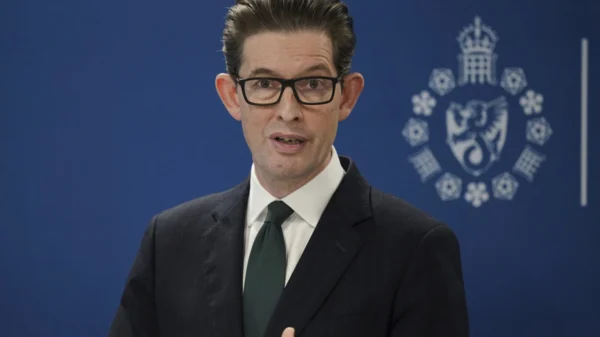Staff writer Aryan Pandla delves into the consequences of the coup d’état in Niger.
The events that unfolded on 26 July 2023 stand as a pivotal moment in Niger’s history – a coup d’état that abruptly shifted power dynamics, sending shockwaves not only within the nation but also across the Sahel region at large. Situated at the confluence of significant ecological and biogeographic intersections, where the arid Sahara meets the fertile expanse of the Sudanian savanna, Niger’s narrative has taken an unprecedented turn.
This audacious coup, which is only one piece in a larger puzzle of chaotic events, is the seventh in a series of convulsions that have rocked West and Central Africa since 2020. It appears to mirror a totalitarian playbook, cloaked under the guise of resistance against perceived neo-colonial influences. The putschists capitalised on the anti-French sentiments prevailing among the populace to maintain a grip on their powers. As Niger’s political landscape spirals into uncertainty, it becomes intertwined with the fragile equilibrium of the Sahel, now a hotbed for global terrorism.
However, the ramifications of this coup extend beyond national borders. ‘The Economic Community of West African States (ECOWAS)’, a cohesive regional entity, finds itself at a crossroads. It grapples with the intricate task of navigating the treacherous aftermath of this coup, which could potentially normalise such power grabs as legitimate means of political transformation. Such normalisation might ignite further instability across the West African landscape.
Niger’s role as a bulwark against terrorism further complicates the situation. Its strategic significance in countering jihadist threats makes its stability imperative for regional security.
ECOWAS’s response to the coup echoes resoundingly. The promise of swift military intervention to reinstate the deposed President Mohamed Bazoum within seven days resonates through the corridors of power. Yet time has slipped by, and the window for action has closed. While the Nigerien airspace remains locked, political turmoil persists. Amidst this chaos, solidarity echoes – a camaraderie among coup orchestrators from Burkina Faso and Mali, united in their support for the Nigerien junta. The delicate balance between decisive action and escalation becomes a tightrope of cautious steps. The disastrous implications of this unprecedented move are explored further.
The Landscape of Extremism: Terror’s Terrain
In the Sahel’s intricate tapestry, instability has paved the way for the rise of terrorist organisations. Exploiting governance vacuums and communal tensions, these groups have flourished. The coup, unintentionally, might accelerate their growth. A weakened state and fractured security apparatus create an environment where malevolent forces can thrive. This phenomenon exacerbates religious fundamentalism, presenting a formidable challenge not only to the region but to global security.
Clash of Civilisations:
The coup’s narrative resonates with Samuel Huntington’s theory of the “clash of civilisations“, which argues that people’s cultural and religious identities will be the primary source of conflict in the post-Cold War era. The Sahel’s mosaic of ethnic and religious identities often becomes breeding grounds for extremist factions like Al Qaeda. Recent decades have seen an increase in crime and complex conflicts due to exploitation, favoritism, and corruption. Mali, Niger, Burkina Faso, Libya, and Chad are examples of this. Due to the increase in militancy, crime, and inter-communal violence in these nations, previously loosely controlled and poorly protected regions have become more strategically important than ever to national, regional, and international actors. The coup, resembling a seismic event, could amplify existing divisions, nurturing the very extremist ideologies it aims to suppress.
French Complexities: Investments and Initiatives at Crossroads
France’s stake in Niger’s intricate political fabric is both profound and entangled. Tied to France’s nuclear energy matrix, Niger’s uranium resources bind their interests. The aftershocks of the coup cast a shadow over France’s initiatives and alliances in Niger. Signs of France’s unease are evident in suspended developmental and financial support, revealing concerns for stability. France’s presence, nurtured through the Barkhane operation, stands against terrorism and for regional stability. The coup shatters this equilibrium, prompting France to re-evaluate its approach.
Russia’s Move: Entering the Stage
Niger’s turmoil offers Russia a geopolitical entry point into Africa, alongside other global players. Amid the chaos, through the Wagner Group, Russia has seized the opportunity to expand its influence by partnering with military regimes. These actions will send ripples through regional dynamics, as external actors vie for control, unintentionally introducing instability to the very region they seek to manage.
Seeking Stability Amidst Turmoil
The impact of the Nigerien coup echoes beyond national boundaries, underscoring a concerning pattern of political upheaval. Democracy’s foundations crumble, ushering in an era of autocratic rule, fostering extremist ideologies which are intent on seizing the throne. The Sahel, ensnared in terrorism’s grip, exposes vulnerabilities through political upheaval. Amidst this turbulence, global powers like the United States, France, and Russia carefully strategise their moves, seeking to safeguard their interests. While the coup creates openings for these external players to expand their influence, it also risks undermining counter-terrorism efforts.
This intricate panorama underscores the complex challenges facing the Sahel. Navigating this storm of political turmoil requires a coordinated global effort. Unity holds the key to untangling this labyrinth and forging a path toward stability in a region laden with uncertainty.

















